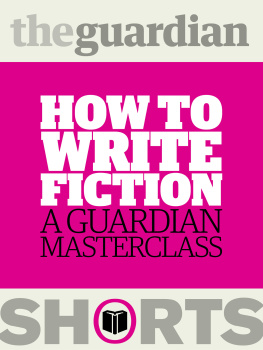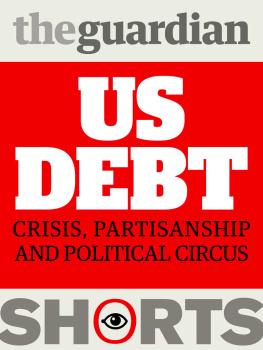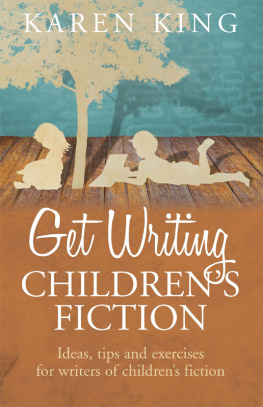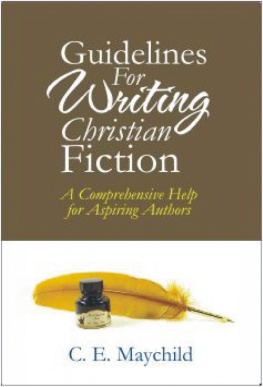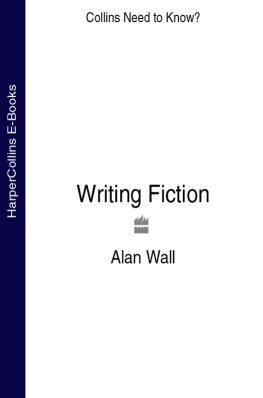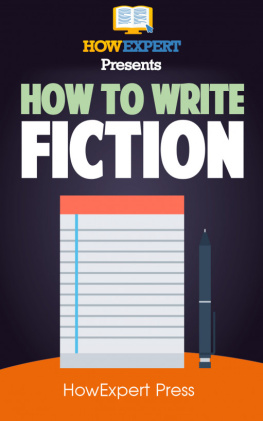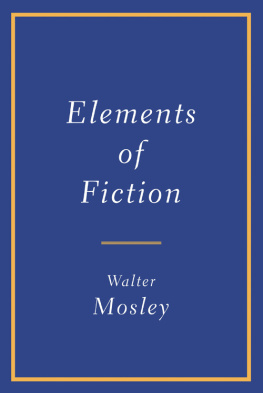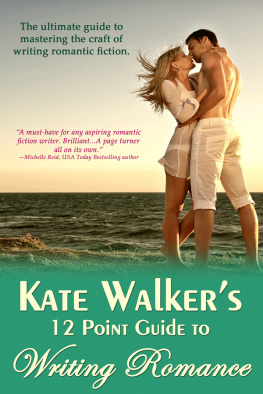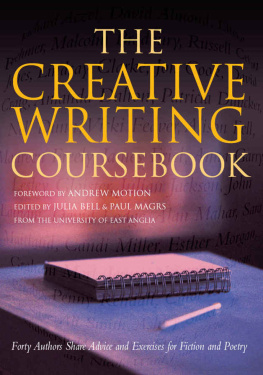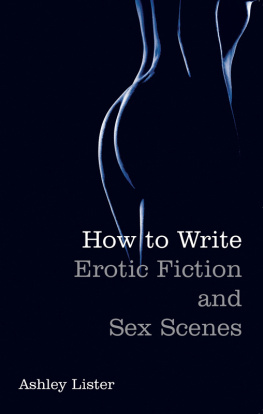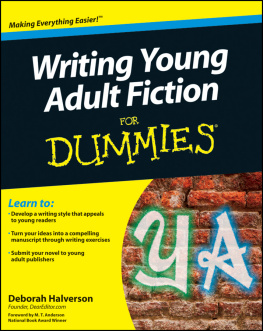1. Introduction
The write way
With so many different ways to write fiction there are no hard-and-fast rules. Best to stop worrying about what you cant do and focus on what youre good at, says Geoff Dyer
T he great thing about this cat the writing one is that there are a thousand different ways to skin it. In fact, you dont have to skin it at all and it doesnt even need to be a cat! What I mean, in the first instance, is feel free to dispute or ignore everything in this introduction or in the articles that follow. As Tobias Wolff puts it in his masterly novel Old School: For a writer there is no such thing as an exemplary life Certain writers do good work at the bottom of a bottle. The outlaws generally write as well as the bankers, though more briefly. Some writers flourish like opportunistic weeds by hiding among the citizens, others by toughing it out in one sort of desert or another.
This freedom is the challenging perk of the non-job. If you are a tennis player any weakness an inability, say, to deal with high-bouncing balls to your backhand will be just that. And so you must devote long hours of practice to making the vulnerable parts of your game less vulnerable. If you are a writer the equivalent weakness can rarely be made good so you are probably better off letting it atrophy and enhancing some other aspect of your performance.
Writers are defined, in large measure, by what they cant do. The mass of things that lie beyond their abilities force them to concentrate on the things they can. I cant do this, exclaims the distraught Mother-Writer in People Like That Are the Only People Here, Lorrie Moores famous story about a young child dying of cancer. I can do quasi-amusing phone dialogue. I do the careful ironies of daydreams. I do the marshy ideas upon which intimate life is built From the sum total of these apparent trivialities emerges a fiction which succeeds in doing precisely what it claims it cant.
Or take a more extreme example: Franz Kafka. Was ever a writer so consumed by the things he couldnt do? Stitch together all the things Kafka couldnt do and you have a draft of War and Peace. The corollary of this is that what he was left with was stuff no one else could do or had ever done. Stepping over into music, wasnt it partly Beethovens inability to conjure melodies as effortlessly as Mozart that encouraged the development of his transcendent rhythmic power? How reassuring to know that the same problems that afflict journeymen artists also operate at the level of genius.
A spokesman for the former, I have written novels even though I have absolutely no ability to think of and no interest in stories and plots. The best I can come up with are situations which tend, with some slight variation of locale, to be just one situation: boy meets girl. Other things structure and tone must, in these severely compromised circumstances, take over some of the load-bearing work normally assumed by plot. The same holds true for certain kinds of non-fiction, those animated by and reliant on more than the appeal of their ostensible subject matter.
This is another lesson: you dont have to know what kind of book you are writing until you have written a good deal of it, maybe not until youve finished it maybe not even then. Thats the second sense in which the cat doesnt have to be a cat. All that matters is that at some point the book generates a form and style uniquely appropriate to its own needs. Why bother offering readers an experience that they can get from someone else? The playwright David Hare once claimed that: The two most depressing words in the English language are literary fiction. Remember this: literary fiction does not set a standard that is to be aspired to; it describes a habit of convention that people writers and readers alike collapse into, like a comfy old sofa.
Which, surely, is not such a bad place to be. Except, for writers, the sofa should always be an extension of the desk. Reading is not just part of your apprenticeship; it continues to inform, stimulate and invigorate your writing life and it is never passive. In The Year of Magical Thinking, Joan Didion recalls her husband, the writer John Gregory Dunne, rereading Sophies Choice by William Styron, trying to see how it worked. (Styrons novel was, for him, a flapping, gobbling, squawking turkey.)
Theres a lesson here. Ones reading does not have to be confined to the commanding and thereby discouraging heights of the truly great. Take a look also at whats happening on the lower slopes, even in the crowded troughs. We tend to think of ambition operating in terms of some ultimate destination the Nobel Prize or bust! but it also manifests itself incrementally, at the level of pettiness. To read a well-regarded writer and to find the conviction growing in yourself that he or she is second- or third-rate, that, in Bob Dylans words, you can say it just as good, is both encouraging and, if acted upon, a niggling form of ambition. (If it is not acted upon it becomes simply corrosive.)
As with ambition so with practicalities. Its a daunting prospect to sit down with the intention of writing a masterpiece. If it has any chance of being realised that ambition is best broken down into achievable increments, such as I will sit here for two hours, or 500 words or whatever. Keep these targets manageable and you will feel good about your progress, even if that progress is, inevitably, measured negatively.
The satisfactions of writing are indistinguishable from its challenges and difficulties. It is constantly testing all your faculties and skills (of expression, concentration, memory, imagination and empathy) on the smallest scale (sentences, words, commas) and the largest (the overall design, structure and purpose of the book) simultaneously. It brings you absolutely and always up against your limitations. Thats why people keep at it and why its far easier to give advice about writing than it is to do it.
Geoff Dyer is the author of four novels and many non-fiction books including The Ongoing Moment, But Beautiful and Out of Sheer Rage. His latest book, Zona, a meditation on cinema, will be published in February by Canongate
How to write fiction: A Guardian masterclass
Writing is a natural process, says novelist Andrew Miller. We are, all of us, geared up for it ... But no one writes for long without understanding that they are entering mystery ...
To guide you on your way, weve assembled a cast of acclaimed writers and industry insiders. From harnessing what Nabokov called the first little throb, our writers will take you through every step of the creative writing process. Each chapter is accompanied by carefully crafted exercises from Kate Grenvilles The Writing Book, designed to help bring your novel to life.
We hope you find the advice and inspiration you need to sit down today and write.
2. Getting started
Writers workshop 1
These warm-up exercises will help you eliminate the enemy: blank paper
There are three groups of exercises here, representing different techniques for getting started. Do some from each group, because the aim at this point is to free your imagination and let it explore unknown paths. Think of these as nothing more than warm-up exercises and dont judge them as pieces of writing. The more youre surprised by what you find yourself writing, the better these exercises are working.
Improvisations
Improvisations are a way of tapping into the unconscious mind rather than the controlled conscious level. Improvisations can help you remember forgotten moments of the past and let you think thoughts that might have been censored or ridiculed into silence. Improvisations are likely to be your own ideas and your own natural language rather than secondhand thoughts and language borrowed from other books.
In the course of writing an improvisation, youre likely to write about what youre really interested in and what youre really thinking about. This will help to answer the question: What should I write about? To get in the mood, start with a completely unstructured improvisation:

